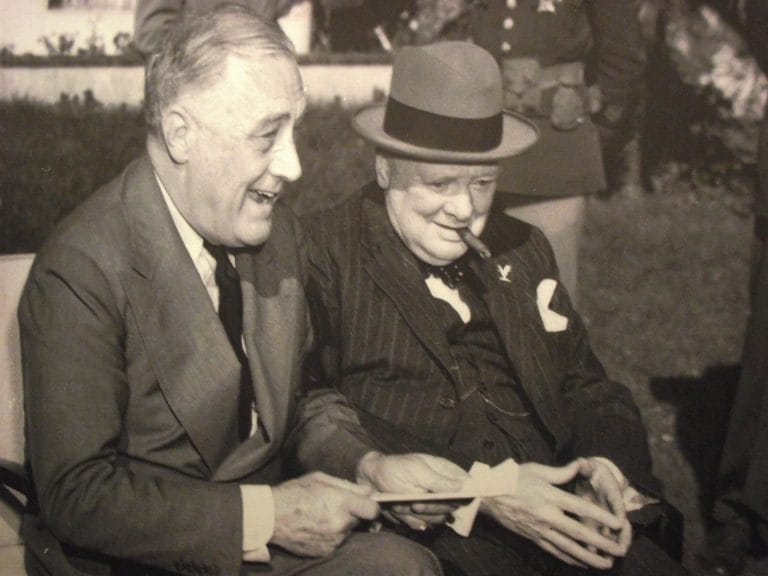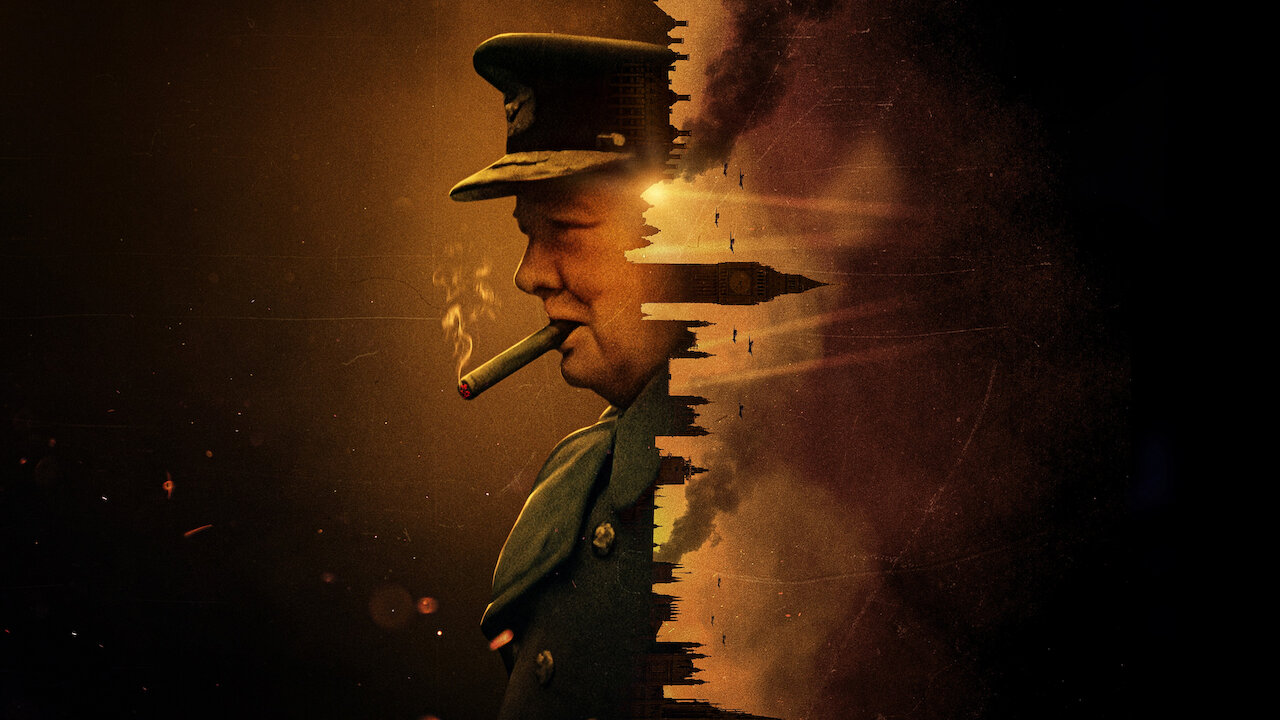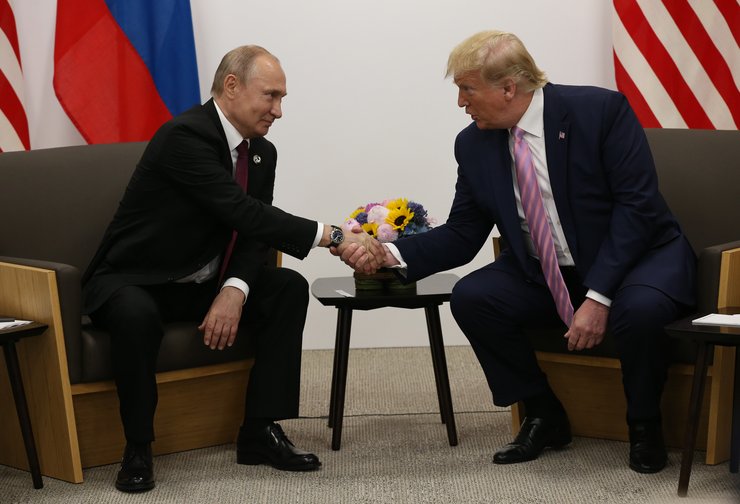The Mark of Cain
Hey, we won. What else is there?

I watched all the way through, a 6-part Netflix series called "Churchill at War" yesterday. Produced by Ron Howard and brilliantly assembled with a cast of commentators including an old Newsweek friend turned historian, Jon Meacham.

And it inspired me to revisit something I've written about before. At the start of World War II, and even before, Churchill warned Parliament and the British people, about the dangers of Hitler's Germany and his territorial ambitions.
1934 - Churchill spoke out against appeasement and warned of Germany's rising power. He said, "a terrible process is astir. Germany is arming".
1938 - Churchill wrote a private and secret letter warning that the British people were living in a "Fool's Paradise" if they ignored the German threat.
Before the House of Commons - Churchill spoke out against appeasement and urged Parliament to prepare for Hitler. He called for rearmament and a mutual defense alliance among European nations.
He was derided as a Victorian-era war monger and imperialist by a public for whom the slaughter of a generation of young men in the trenches of France was still fresh in their minds. He knew Hitler could not be trusted, and when a well-meaning but terminally naive Neville Chamberlain traveled to Munich to parlay with a psychopath, he said it was pointless.

The result was the Munich Agreement wherein Chamberlain and the prime minister of France, Edouard Daladier, agreed to Hitler’s demands for Czechoslovakia to cede a portion of its territory known as the Sudetenland to Germany; in return, Hitler assured the Western Allies that he had no further territorial ambitions. Six months later, Hitler invaded Czechoslovakia and almost one year later to the day, he invaded Poland.

Churchill called the agreement...
“A total and unmitigated defeat” and warned his audience that “there can never be friendship between the British democracy and the Nazi power, that Power which spurns Christian ethics, Which cheers its onward course by a barbarous paganism, which vaunts the spirit of aggression and conquest, which derives strength and perverted pleasure from persecution, and uses, as we have seen, with pitiless brutality the threat of murderous force. That Power cannot ever be the trusted friend of the British democracy.”
And it was no better over here in the Grand Old Republic. As I wrote earlier...
But, in 1938, twenty years after World War I had ended, 70% of Americans polled believed that the United States' participation in that war had been a mistake. In fact, the United States had only been involved in the final nineteen months of the bloody conflict, between April 1917 and November 1918. America had passed the Neutrality Act. We just didn't want to be involved.
Roosevelt cajoled the congress into approving Lend-Lease in 1941 so we could help the beleaguered allies with the equipment they needed to fight the Nazis. As Churchill famously said, "Give us the tools, and we'll finish the job."
Of course, Pearl Harbor ended the fantasy that the richest country in the world could retire to a neutral corner as the world was going up in flames. But as you see, there were plenty of folks who thought we could and plenty of Americans who agreed with them.
Churchill simply couldn't believe that the largest and richest republic in the world would let the Brits face a monstrous and land-hungry tyrant alone and let him have his way without helping defend democracy. But as Jon Meacham said in the documentary, "...history intervened in Hawaii."
So, when things were bleakest during the Battle of Britain and the Blitz, Churchill practically carried the country on his back with speeches guaranteed to stiffen the spines of even those in Parliament who were urging a treaty with Hitler to prevent invasion.
Now we come to today. And for some reason I simply cannot fathom, dictators are back in fashion. From Trump’s bromance with the brutal ex-Philippines President Rodrigo Duterte to the fawning enthusiasm of many on the US right for the Hungarian prime minister Viktor Orbán, apparently because he's pretty anti-gay, or the invitation to ex-Brazilian president Jair Bolsonaro to speak at this year’s Conservative Political Action Conference – contemporary Republicans’ admiration for right-wing authoritarian leaders is no secret.

And from the man who returns to the White House in January, his admiration for Presidents Kim, Xi, and Vlad himself is well-known and publicly stated. With the help of modern Lindberghs, only without the courage, like Tucker Carlson, we come full circle. Xi is invited to the inauguration, Trump is building a hotel in Saudi Arabia with the help of Prince Mohammed Bin Bonesaw and the fear of speaking ill of Putin is so great that when Vlad killed his chief critic, Alexei Navalny, the only mention from Donald J. Trump was to compare his legal troubles to Navalny. One more reminder, Mr. President, Navalny is, uh, dead.

And now a brave man, leading a country in a desperate fight against a brutal and murderous, land-hungry dictator needs the free world's help. Unlike Churchill, he doesn't ultimately ask for the 82nd Airborne to drop into the fight, but like the earlier plea, he wants only the tools to finish the job.
But today, with the help of hopelessly polarized media, we can ignore a delicate sea change in Syria saying it's none of our business, and urge Zelensky to just give Putin a little slice of Ukraine, the Sudetenland, if you will. Surely Vlad will stop at that, right? It appears that some have decided a new "America First" movement is the right course, and we can occupy our time and resources on drones over New Jersey and Biden's poll numbers long after they have any relevance.
Though Roosevelt was contending with the same isolationist sentiment in America, and Churchill was holding Britain together by the sheer force of will, in December 1940, fresh off his second reelection campaign and with the Nazis occupying much of Western Europe, Roosevelt warned against any further attempts to appease the Nazis. He said that “No man can tame a tiger into a kitten by stroking it.” He then urged Americans to make their country “the great arsenal of democracy.”
Are we still those guys? Although his efforts failed to prevent war, even Chamberlain’s fiercest critics conceded that he was driven by the purest of motives, a deeply felt desire for peace. Is that the motive driving the isolationists today? Are we so transfixed on party fights and the price of eggs that nothing else matters?
The LORD then said to Cain, “Where is Abel your brother?” and Cain responded, “I do not know. Am I my brother's keeper?”
Well, are we?

